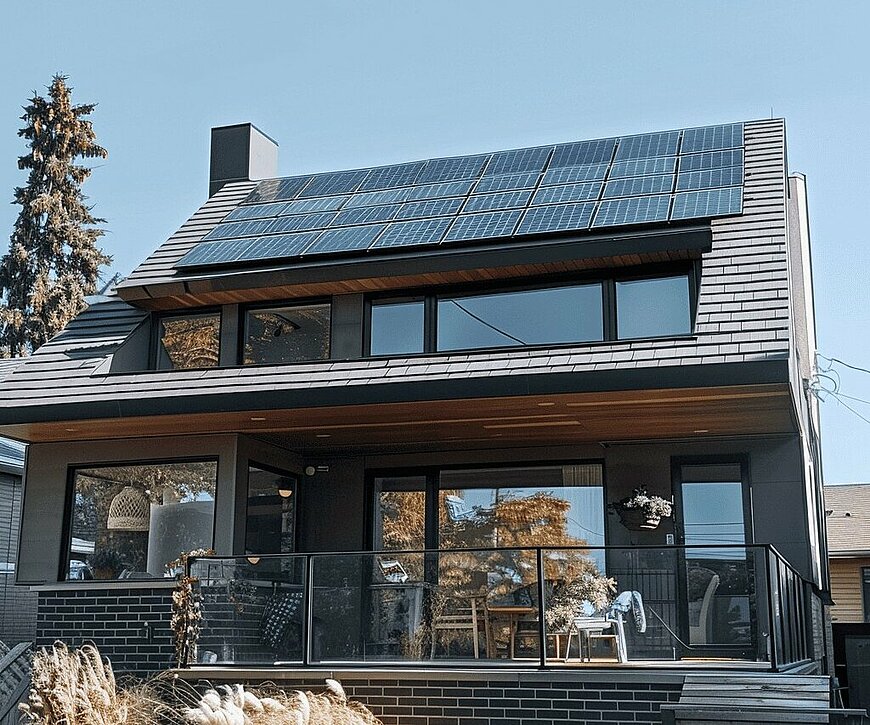When simply reusing solar panels beats recycling

As the world steadily progresses towards a more sustainable future, recycling solar panels becomes increasingly relevant. However, in some cases, simply reusing old solar panels is better. CORE CHANGEMAKERS, once a student team at Eindhoven University of Technology (TU/e) and now evolving into a startup, is exploring the possibility of using old solar panels. “We investigate whether they can be reused in the social housing sector,” says project manager Antonia Tiplea.
For the past one and a half years, team CORE from TU/e has tirelessly investigated ways of recycling solar panels. Often, used panels are shredded. This method is used to make low-value products such as cement or sandpaper. A new method caught their attention: pyrolysis, a high-temperature process that breaks down the adhesive layer binding the different components of the solar panels.
However, the students discovered that recycling solar panels this way isn’t feasible in today’s market. Tiplea explained, “Our research revealed that the volume of solar panels reaching the end of their lifespan is insufficient to sustain a recycling plant. This would not be financially feasible.”
Social housing
The students didn’t sit back and accept defeat. Some team members are now delving into alternative approaches to prevent solar panels from ending up in the shredder through a new startup venture. With the Ikaros project, Tiplea and others research the possibility of distributing panels within the social housing sector. It’s not the easiest business case, Tiplea admits, as used solar panels don’t always lend themselves to straightforward deployment. New solar panels become increasingly affordable, so the appeal of used panels diminishes. Additionally, with the growing electricity demand, households prioritize maximum power output, which used panels often struggle to provide.
Therefore, sending solar panels to sunnier countries could be a good idea. But there are other options here in the Netherlands, too. “Consider temporary roofs, for example. If housing associations plan to replace or demolish roofs, it’s smart to use old solar panels temporarily.”
The benefits of using old solar panels in social housing
Using old solar panels in social housing offers several benefits. Research led by Sietse de Vilder in collaboration with AMS Institute suggests that switching from buying new panels to reusing functional old ones could significantly help the environment. By adopting second-hand solar panels, housing associations can make the most of existing resources and cut down on waste. Additionally, as per the National Performance Agreements, housing associations are required to provide free insulation to all their housing by 2028, eliminating energy labels E, F, and G. Second-hand solar panels can help achieve this without causing excessive rent hikes.
800 solar panels perfectly usable
The students go beyond paperwork, actively investigating their idea in ‘real life’. Deyana Mineva, another team member of CORE Changemakers: “During our market investigation, we stumbled upon the most bizarre stories. For instance, Stichting ZonNext, an association that manages second-hand solar panels, received information from an installation company that they recently acquired a batch of 800 solar panels that were still perfectly usable, except their cables had been cut off. So they send them directly for disposal. Those panels could have had a valuable second life.”
This idea has sparked a wave of enthusiasm. There’s a possibility the students might present their findings at the Eindhoven City Council. The startup is also talking to Stichting Woonbedrijf. “We are quite proud that we are making some good connections here in the area.”
Ten or a thousand roofs?
The students will continue their research in the upcoming months. Tiplea: “We want to know more about those temporary roofs. “Whether there are only ten or a thousand roofs suitable for panels in the next five years will significantly affect our idea’s success.”
The project, a key part of both students’ graduation process, will wrap up by the end of June. “But I see how our idea really can make a difference. So, we might continue, even after graduation,” Mineva concludes.

